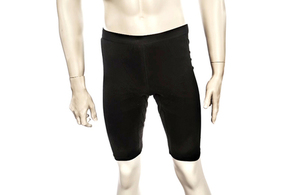Pants PhD for Dstl scientist
A scientist at the Defence, Science and Technology Laboratory (Dstl) is celebrating after his research into washing combat underwear earned him a PhD.

A scientist at the Defence, Science and Technology Laboratory (Dstl) is celebrating after his research into the effects of washing on combat underwear earned him a PhD from Cranfield University.
The unusual research topic even looked at using a cement mixer to do the laundry – because this was the ingenious ways soldiers found to keep their clothes clean in Iraq and Afghanistan in front-line operating bases without many facilities.
How to watch this YouTube video There's a YouTube video on this page. You can't access it because of your cookie settings. You can change your cookie settings or watch the video on YouTube instead: Mark talks about his reearch
Mark has spent the last 7 years researching the effect of continuous washing on protective clothing. The study looked at how protective systems, including the Tier 1 Pelvic Protection System or “blast pants”, issued to troops during the Afghan conflict would degrade with use.
At the time, the development of the protective underwear was an Urgent Operational Requirement (UOR) and therefore it was not possible to do all of the testing that would normally be done during the procurement process. Dstl started work to understand how robust these items would be to help improve them for the next generation. It turned out that the garments were far tougher than had dared been hoped!
Mark said:
The introduction of fragment protective fabrics into combat clothing meant we needed to understand the effect of laundering on the performance of these fabrics. The research revealed evidence that the fabrics used retained their ballistic protective performance, while other potential fabrics showed improvement after washing.
A number of wash types were investigated in the research, which included washing in a cement mixer.
Mark added:
I started work in the field of body armour 20 years ago, and served with the UK Armed Forces in both Iraq and Afghanistan as part of the scientific advisory branch. With friends in the Armed Forces it became a personal battle to help protect those who were putting themselves in harm’s way.
Mark has been nicknamed Dr Tenuous by colleagues after his unique PhD work got a mention on Chris Evan’s Radio 2 Breakfast Show.
Mark’s research is now being used to inform the development of the next generation of fragment protective clothing for the Armed Forces.